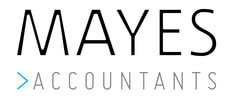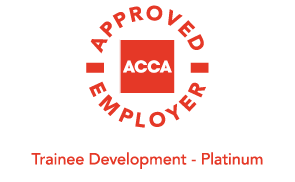KEY BUSINESS TRENDS FOR 2020
Published 23 January 2020
The environment, wellbeing, mental health and technology look set to be some of the big business trends in 2020.
As we move into 2020, businesses will have to adapt in a world that places greater emphasis on sustainable business practices. People will want to work for firms that take care of their employees in terms of their physical and mental health.
Technology will continue to be the key enabler to allow us to work flexibly, remotely and more effectively. It looks like 2020 is set to be a busy year for businesses in the UK and internationally.
Customers are becoming more environmentally aware. Companies like Beyond Meat, the maker of plant-based, protein-rich foods or Everlane, which creates clothes from recycled fibres and plastics, are gaining traction. People are trying to reduce their carbon footprint and are making buying decisions on the basis of the environmental credentials of businesses.
As a result, businesses are responding by focusing on their environmental and sustainability policies. Many firms are adapting their CSR activities to include environmental projects in order to help drive the green agenda in local communities. As we move into 2020, this trend is likely to accelerate.
On the technology side of things, machine learning and artificial intelligence (AI) are continuing to advance. The AI industry is growing and businesses have access to more powerful tools in order to create new customer experiences. For example, music-streaming service Spotify uses AI to make the listening experience more personal by creating customised play-lists for each user.
Younger workers are putting greater emphasis on physical wellbeing and their mental health. Employers will need to adapt in order to attract the next generation of talented employees. Flexible working and wellness programmes are high on the list of priorities for Millennials and Generation Z employees. The businesses that really embrace these new trends will attract the best people.
DUVET DAYS AND HANGOVER DAYS
New trends are emerging as flexible working becomes more commonplace.
Employers are embracing change. Flexible working, working from home, working part time or job-sharing are all relatively recent developments in the modern workplace. As businesses battle to attract talented employees, some firms have started offering duvet days and hangover days too. A duvet day allows an employee to take a day off, with no notice, on a day when they just can’t face getting out of bed.
This can be helpful for employees who are stressed due to heavy workloads and are in need of a break, in order to recharge.
A more recent trend is the hangover day. A hangover day allows staff members to work remotely or just take a day off, if they are feeling tired the morning after a night out. Recent press coverage saw one firm introduce such a policy in order to offer something different to “younger millennials who typically go out midweek.”
These policies are certainly different. However, businesses that introduce them should ensure that they do so in a way that isn’t seen to encourage heavy drinking, as this would be at odds with an employer’s duty to safeguard the health and wellbeing of staff. Any such policy should also be set out in a way that doesn’t discriminate against certain groups of employees.
On the flip side, employers who introduce policies around duvet days, hangover days or flexible days off, could be seen as more forward thinking businesses. Introducing any such policy should be done in a way that encourages employees to maximise their productivity while supporting their need to enjoy life outside of work.
Finally, any business that introduces these policies should consider how they will manage the number of random days off each employee can take. Flexibility is a good thing but it is necessary to set reasonable parameters in order to ensure that employees are productive.
FAST FOLLOWER VERSUS FIRST MOVER ADVANTAGE
Most of us are familiar with the term “first mover advantage” but sometimes the “fast follower” is the winner.
A Fast Follower is a company that quickly imitates the innovations of it’s competitors by collecting research and data. By figuring out the innovations that seem to have the greatest potential, companies are able to weed out the “duds.” For example, many people consider Google to be the innovator of the pay per click search engine. Google was actually a Fast Follower. A firm called Overture came out with this idea two years before Google launched it’s superior version.
By learning what Overture was doing right, Google was able to spend more time focusing on what they could do better. This learning process is one of the main components of the Fast Follower strategy.
A similar situation occurred in the mobile phone market. Motorola pioneered the mobile phone. Samsung and Apple were late to the party but today they are market leaders in this highly competitive market sector because they found a way to do it better – they focused on making smart-phones with touch screens, great cameras, email and internet functionality.
The First Mover generally has to invest considerably in research and development. They have to test various options before bringing their new innovation to the market. Fast Followers can leverage off the research that has already been invested in by the First Mover so their time to market is faster and their research & development costs are usually lower.
That said, the First Mover will set the benchmark for their particular market. Fast Followers therefore have to work hard to offer a solution that is better in some way. The Fast Follower needs to get this right.
Consumers are generally more forgiving of First Mover errors. If a Fast Follower enters a particular market, the existing customers of the First Mover will have set their expectations and they will tend to expect the Fast Follower to meet or even exceed those standards, in order to trigger a buying decision.
While First Movers can gain a competitive edge and initial market share, there's a lot to be said for the Fast Follower approach and learning from the mistakes of others. However, Fast Followers need to be just that - FAST.
HOW TO AVOID BECOMING A MICRO-MANAGER
Holding your employees accountable without micro-managing can prove difficult for any business owner or manager.
We have all been in a situation where we know we can do something better ourselves. We find it difficult to watch someone make mistakes but if we interfere we can end up falling into the trap of micro-managing our employees.
Micromanagement is the ultimate controlling management style. It involves trying to manage and personally control, monitor and approve every decision, every team member or every situation. From an employee’s perspective it is demoralising as they feel that they aren’t trusted and that their manager is always checking up on them.
If you struggle with delegation, you are more likely to become a micro-manager. Delegation isn’t easy. To begin with, you need to be comfortable with the fact that you can’t do everything yourself. You then need to identify the tasks that you are happy to delegate to others. In some cases it can be helpful to set out your strategic plan in writing then transfer the necessary knowledge to a team member that you know will be able to handle the task.
Over time, you will learn to let go of the notion that everything needs to be perfect. In reality, nothing is perfect. In business, everything should be fit for purpose but this doesn’t mean it must be 100% perfect.
In order to avoid micro-managing your employees, begin by hiring good people. If you hire a team of people who inspire confidence and are keen to take on responsibility, you will feel more comfortable trusting them to do their job. Before hiring a new team member, consider the current needs of the business, the team dynamic and make sure that any new recruits will fit well within the existing team. If you trust and respect your people, they will perform well and you will find it easier to step back and let them do their jobs.
Finally, empower your team members to make decisions. Arrange regular update meetings regarding progress, make yourself available in case they have any questions that they want to run by you, but give them ownership of their objectives and make them accountable for delivery of their responsibilities.
Location |
Registered as Auditors and regulated for a range of investment business activities in the United Kingdom by the Association of Chartered Certified Accountants Copyright@2018 Mayes Business Partnership Ltd 1974-2024
|












